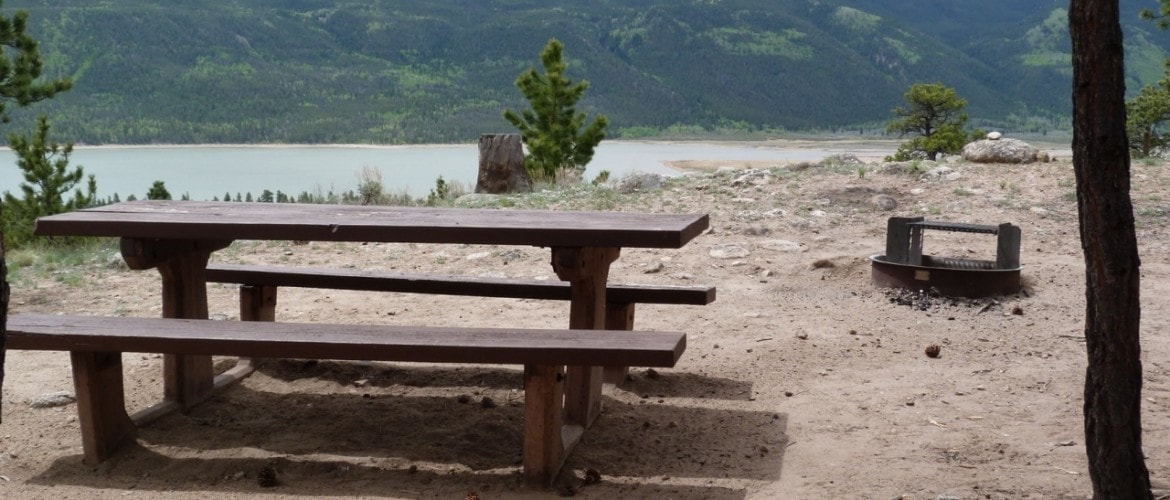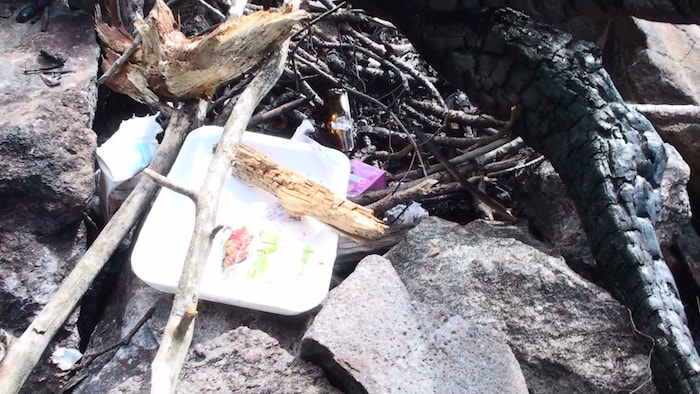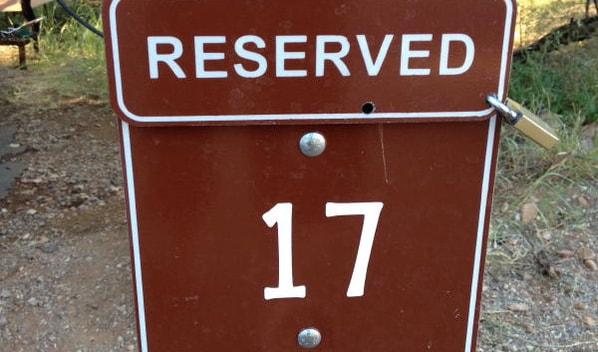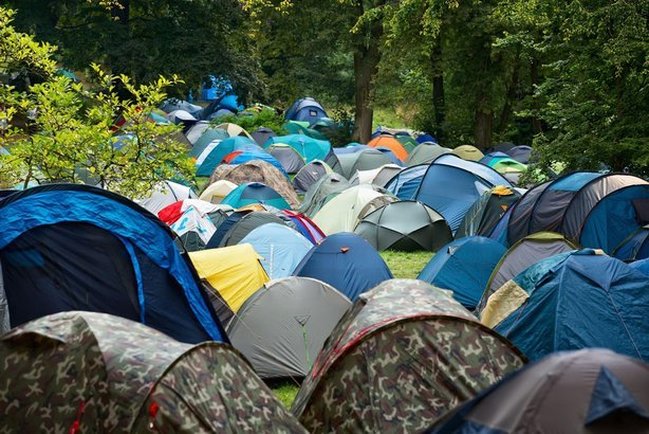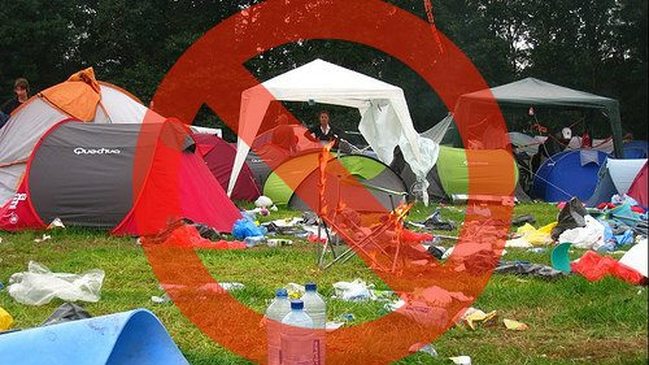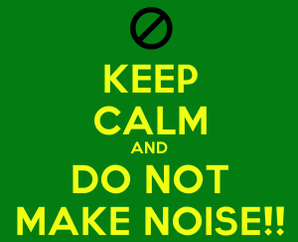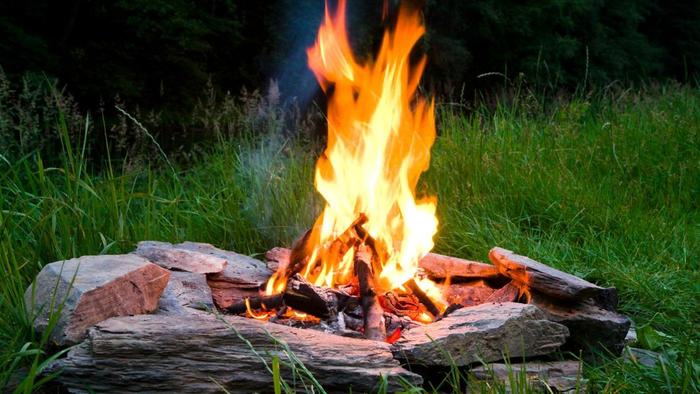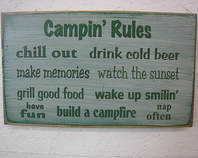 For the outdoor, nature and wildlife lovers out there, camping is a big and enjoyable part of that whole outdoor experience. And most reserves, national parks and lodges have designated camp sites where travelers and overlanders can pitch their tents, relax and get away from the hustle and bustle of every day life. All these campsites, however, are meant to be shared...not together with strangers, but after you leave, someone else will come to setup in the same spot, or when you arrive at a campsite, someone will have been there before you (unless it's a brand new campsite....but that's not a frequent occurrence). And with all this sharing going around, there is unfortunately not that much caring going on. My point is that camping etiquette is something that we all, as outdoor enthusiasts, need to have a firm grasp of and put into practice EVERY TIME we go camping. I'm a member of the 4x4Community forum and a couple of weeks ago I read a post another member wrote about their bad experience with messy campsites during their trip to Mabuasehube in Botswana. "Fireplaces are not cleaned"; "We found a big log still burning and left totally unattended from the previous campers"; "At one site we filled two shopping bags full of other peoples toilet paper and burned it. Not a pleasant task," are just a few of the comments the person mentioned and this spurred me to do some research and compile a logical, to-the-point list of general do's and dont's when it comes to camping, in order to try and spread the word to all like-minded campers out there, so that camping continues to be an enjoyable past-time to bring us closer to nature. Firstly, not all campsites are the same, not only in one region or country. There are different rules and regulations (this sounds so "authoritative" and "strict", but you know what I mean) that vary according to campsite, location and even country. Not all points are applicable to all camps, but most of them will apply to which ever campsite you visit. Your Campsite is Yours and My Campsite is Mine As with most places, campsites should be booked in advance so that you aren't faced with a fully-booked campsite when you arrive. Booking your campsite in advance will also mean that it's yours for the dates you booked it and no one else can pitch their tent there instead. There have been many reported instances of campers arriving to their sites after a long drive only to find someone else already there, "illegally", without a booking. Aaakward... So, do make sure you book your camp spot beforehand and don't take over a campsite that you haven't booked. That's just not cricket. "I Need My Space, Man!" There are campsites and caravan parks where there may not necessarily be designated spots for each group of campers. In this case it's logical that you not set up your camp on top of someone else's. Unless you are friends with the other campers, keep your distance, giving them and yourself some privacy and room to breathe. In addition to this, in such camps, avoid walking through other people's campsites while on your way to the ablution block or going for a nature walk. Your campsite is your home away from home, so just as you wouldn't appreciate it someone waltzed through your living room to get to the neighbours behind you, don't go waltzing through someone's campsite either. Take the slight detour (of only a few steps probably) around their site and keep the camp-relations positive! Cleanliness is Next to Godliness They say being clean is a sign of spiritual purity or goodness. Keeping your campsite clean not only while you're there, but before you leave can also be considered a sign of spiritual purity or goodness! :) You arrive at camp after a long drive, you want to set up and unwind with a refreshing beverage in your hand and perhaps have a tasty bite to eat a little later on while enjoying the sights and sounds around you. Oh wait... you first have to clear up the ash and coals in the fire pit left by the previous visitors. Oh, and then you have to collect all the toilet paper that's tumbling through your camp, collect the cigarette butts strewn all over the place, pick up the trash, flush the toilets (if there are any), unclog the shower drain (if there is a shower).... Did you sign up for the clean-up volunteer service or are you on holiday, ready to relax and unwind? This one is pretty logical, don't make a mess of the campsite. Most have dustbins for you to dispose of your trash with. If not, or if the bin is filled, then take your trash with you. Ever see those large canvas bags on the rear spare wheel of a 4x4 vehicle? Most of the time they are used for carrying trash out of a campsite. If you don't have that, then bring along a few black refuse bags and keep your trash in them, take them with you and dispose of them once you find a trash can or container when you leave your campsite. Sure, some campsites have a clean-up service the following day, but out of general courtesy, use the bins regardless and throw cigarette butts into the fire if you make one. If the campsite has a flush-toilet, use it make sure all toilet paper is properly disposed of. If you are bush camping and have done your 'business' in a hole in the ground, either bury the paper along with your 'business' (making sure the hole is deep enough so that no animals will dig up the tp) or ideally burn the paper on your campfire. Camping in Africa usually means having wildlife around. Leaving food trash around will attract animals which will result in the animals associating humans with food, which is never a good thing. And a thrown away chip packet won't go down too well if a baboon or impala chewed on it. Decibel Pollution One of the main reasons we enjoy camping is so that we can get away from the hustle, bustle and noise of every day life in the city. Ergo, having to put up with loud laughter, blaring music or screaming kids goes against the point of camping, does it not? Keep noise levels to a minimum at all times, especially at night. Don't bang your pots and pans as if you are Gordon Ramsey cooking up a storm in your camp kitchen. Loud shouting and laughter not only disturb other campers but the wildlife as well, so keep it down at all times. Music is more often than not a big "No-No". Listening to Metallica on your iPod via earphones is acceptable. Playing your stereo so loud that the entire campsite or park can hear every lyric isn't. That means no live instruments either. You're camping in nature, not performing live at Wembley Stadium, so leave the guitar at home. Camping with kids...hmm, that can be a sensitive topic, but the same logic applies as with the above. Just because they are kids doesn't mean they can shout and scream and disturb the tranquility for everyone else. Responsible campers will educate their kids on being (relatively) quiet when camping and should explain why they should be (relatively) quiet and not disturb others or the nature and animals around them. If you teach your kids to respect camping as an activity, then they too will heed the same principles when they grow up and go camping with their own families. If your kids are just too noisy, loud and out of control then either stay at home or find someone to babysit them while you enjoy the peace and quiet of the great outdoors. Finally, generators... Some people bring them along when camping for whatever reason (we once saw a family using a generator to run a mini air-conditioner that they had attached to their tent), but that's something that really has no place in camp. Most generators are quite loud, the sound itself is annoying and if you have one you probably plan on running it for hours on end, which is even worse! I can't really think of any instance where campers running a generator in a campsite is acceptable (if there are any REALLY GOOD reasons out there, please comment below), so I'd highly recommend leaving your generator at home. The noise will irritate not only you (trust me, it will) but everyone within a 10km radius of your campsite and you and your party will be frowned upon by all the other campers who came there to get away from loud engine noises. You're the Firestarter, Twisted Firestarter Camping without a warm, inviting camp fire is like going to the beach without any sand. In most places in Africa it is forbidden to cut down or collect any wood for fires in the reserves and/or parks. You must bring your own firewood with you or purchase bundles of firewood from the gate or reception when you enter the park or reserve. In other parts of the world such as Australia and Northern America/Canada, you are allowed in some places to collect branches from the ground for your fire, but under no circumstance should you cut down any trees or bushes in order to get firewood. It's always best to check first what the regulations for that specific campsite say, but make it a common practise to just bring your firewood along with you into camp. Most campsites also have designated fire pits for your camp fires, so use these at all times and don't go starting fires all over the place. The campsite will not only be a total mess the following day, but a gust of wind can spread the fire and cause catastrophic damage to the surroundings and may even harm you, your family and your gear. None of the above are that complicated to follow and most are pretty logical as well. Camping is meant to be a great outdoor activity enjoyed by everyone. One group's neglect and/or laziness will ruin the experience for another. Let's not do that. Stick to the...guidelines (we won't call them "rules"), enjoy yourself and everyone else will as well. We have summarised all the above in a printable PDF for you to download and take with you on your next (and every) camping trip. Download the PDF from here. Below is a link to some interesting "Camping Hygiene Tips": https://survivallife.com/camping-hygiene-tips Check out this short video about some camping do's and don'ts as well:
1 Comment
|
Who is RBOF?
"We are a Botswana-based family of 3, with a passion for going out into nature and the bush any chance we get!" Categories
All
Archives
August 2022
|
